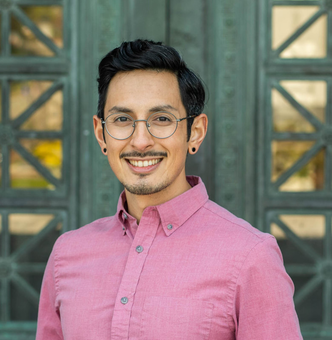|
Email: [email protected]
CV: callejas_cv_july2024.pdf |
Dr. Hector M. Callejas is an IDEAL Provostial Fellow in the Department of Anthropology at Stanford University. He earned his Ph.D. in Ethnic Studies from the University of California, Berkeley. He is an interdisciplinary scholar of race, ethnicity, and Indigeneity, with a focus on transnational social movements in the Americas. His research and teaching cover sociocultural anthropology, comparative ethnic studies, and Latin American studies. He uses ethnography and critical theory to examine the formation, mobilization, and governance of racialized minority groups, including Indigenous peoples and migrants. He has two research areas: Indigenous rights advocacy in the western highlands of El Salvador (Central America); and environmental justice activism in the Sacramento Valley of California (United States). His work reveals the possibilities for knowledge production, political action, social justice, and systemic change centered on minority experiences and perspectives.
Hector is a mestizo (mixed-race of White and Indigenous ancestry) Latino. He is from a predominantly Mexican immigrant community in Sacramento. His family migrated to California from El Salvador and Guatemala during the 1980s. |
